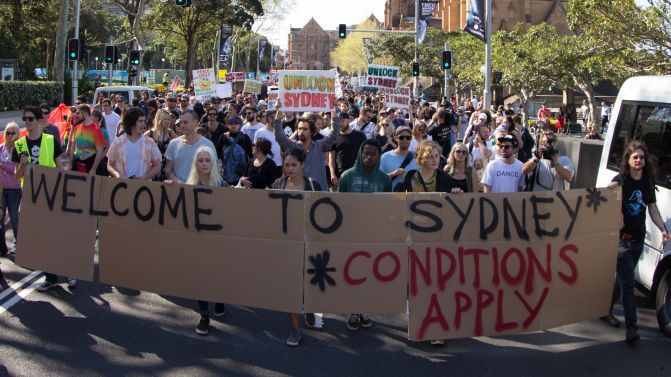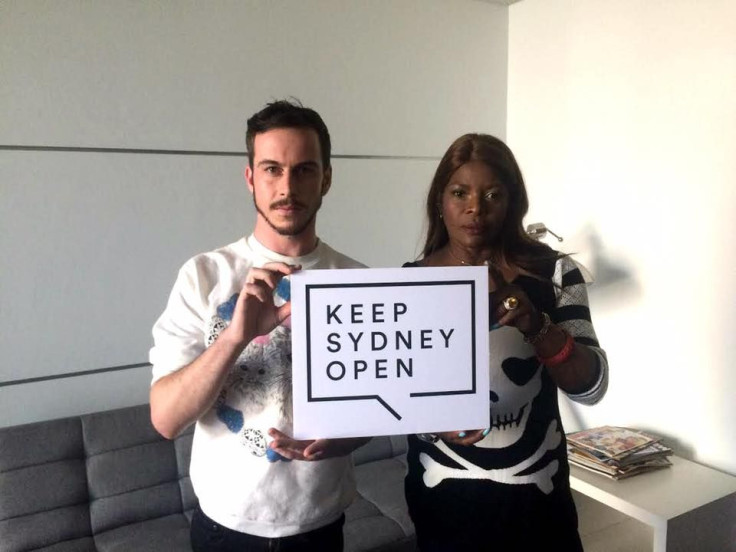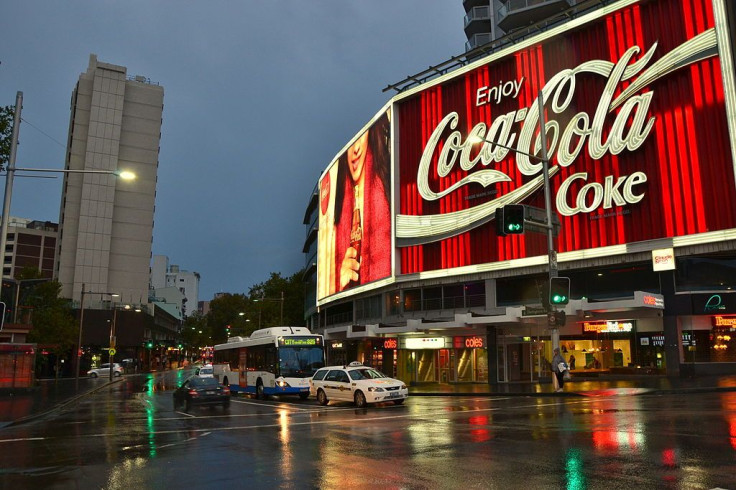Bar owners and bartenders have their say on Sydney’s lockout laws as QLD Parliament set to pass similar bans

When a series of fatal one-punch assaults occurred in New South Wales (NSW) in 2013, the NSW Government reacted by promptly introducing lockout laws in Sydney’s inner-city venues. This included patrons not being able to get into a bar or club after 1:30am; last drinks at 3am; and takeaway alcohol sales prohibited after 10pm state-wide.
Over the next 18 months, debate about the effectiveness of the lockout laws buzzed continuously, but it reignited last week after chief executive officer of Freelancer.com, Matt Barrie, wrote an essay about the issue which went viral on LinkedIn, with a No. 1 global ranking and more than 930, 000 views.
“Every week, another venue or restaurant closes. The soul of the city has been destroyed,” he wrote.
In his essay, ‘Would the last person in Sydney please turn the lights out?’, Barrie argued that the NSW government was creating a nanny-state, and claimed that the statistics used to support the lockout laws were rigged. He also said the bans have made NSW a laughing stock on an international level.
The essay drew great support from both Sydney-siders and businesses affected by the laws, such as APAC Head of Media & Entertainment, AWS, Brendan O’Shaughnessy:
“Great article detailing the sad decline of a great city. I moved to Sydney 15 years ago and loved it - nightlife was a breath of fresh air.”
Hugo’s, SOHO Hotel and Jimmy Liks are some of many venues which have closed down over the past year due to the lockout laws. A more recent victim is Bar Century on George Street in Sydney, with manager Cavan Pugh telling the Sydney Morning Herald that the NSW laws were a “contributing factor” to the venue’s closure.
The furore about the lockout laws only gained momentum when New South Wales Premier Mike Baird responded to the discussion with his own comment piece on Facebook, defending the government’s lockout laws and arguing that they were effective in controlling violence across the city.
The latest data tells us alcohol related assaults are down in the CBD by 42.2%. Some thoughts on “lockouts”. https://t.co/wmxsnekX2q
— Mike Baird (@mikebairdMP) February 9, 2016
According to Weatherburn who spoke to the Sydney Morning Herald, Baird’s calculations that assaults in the Sydney CBD were down 42.2 per cent, and that openings of small bars had doubled, were off.
Weatherburn believed that Baird had “compared the situation directly before and after the lockout laws were introduced in February 2014, but assaults had already been declining since 2008”.
“When the existing downward trend is taken into account, the decrease since the lockout laws is closer to 45 per cent in Kings Cross and 20 per cent in the CBD,” he added.
Lockout laws means death of city and businesses, say opponents
Premier Baird’s stats were not the only element that was attacked, as employees and small business owners affected by the lockout laws raised their voices in criticising the government for its authoritative hand, lack of trust and the consequences the bans have on businesses operating in the area.
Campaign group Keep Sydney Open, which was formed by several Sydney live music and performance venues, organisations and music industry stakeholders in 2014, has seen its petition to reverse the lockout laws grow from 15, 000 signatures to more than 36,000 last week, after Barrie’s essay went viral.

“Crucial live music venues in Sydney have closed, several hundred jobs have been lost and the magic around our city is fading,” the group said. “All this for a minimal impact on violence, which has shown to be in decline since small-bar licenses were granted in 2007.”
Charlie Lehmann, business owner of Ramblin’ Rascal Tavern on Park St, is one of many who have felt the direct impact of the ban.
“As a business owner who employs 10 staff we have experienced an underemployment for some of our staff members with at least two staff members searching for a second form of employment because we cannot provide enough hours for them,” Lehmann told International Business Times Australia.
“The lockouts have [also] encroached on cultural sensibilities of small bar owners providing a safe drinking environment for our guests, forcing people away from our establishments into the hands of the casino,” he added, referring to the fact that casinos in Sydney are exempt from the bans.
“It has been stated by politicians, licensing and police that their laws are intended to disperse ‘anti-social’ behaviour. The issue I have with this is we as small bar owners/operators actively encourage social and friendly behaviour while venues such as the casino encourages the act of feeding a pokie machine, the antithesis of social behaviour. These two points are poignant examples of how the lockouts have affected us.”
Lehmann points also to the effect the ban has had on Sydney’s image.
“Guests and especially international guests are quite perplexed about the rules and regulations imposed by the government and police. Every single guest that walks through our doors are law abiding and only want to enjoy what Sydney has to offer but at every corner are turned away due to these laws.”
Raphael Redant, Venue manager of Stitch bar on York St, agrees with Lehmann.
“The violence may have reduced but also the foot traffic and the tourism industry - many times I walk past midnight on George Street without seeing a single human, a little strange for one of the biggest cities in the world. Overseas patrons sometimes don’t believe me when I try to explain that to them.”

Employees too, have felt the effects of the lockout laws, with top Australian DJ Alison Wonderland calling out Premier Baird on her own Facebook page. Wonderland’s first following started in 2009, when she was offered by Bundaberg to play in pubs around the country.
Thank You @awonderdj. pic.twitter.com/kyHgUFp8DA
— the interns (@theinterns_net) February 10, 2016
Meanwhile, 21-year-old sales assistant at Liquorland and promoter at White Rabbit nightclub, Jan Blomgren, believes the laws not only ruined Sydney’s night-life, but also do not rectify the issues of alcohol related violence.
“Take-away food shops, taxi drivers and security are all at a loss as a result of these laws. Musicians have and will continue to lose work with the lockout laws and more and more clubs to close,” he said.
Although much of the support has been for ending the lockout laws, there are a number of groups who believe the bans are justified and effective.
For example, emergency staff from St Vincent’s Hospital want to keep and expand the state’s lockout laws, according to news.com.au.
“Some voices call for the laws to be removed, to go back to the way things were … as time passes it’s harder for people to remember just what those days were like - but those of us who work on the frontline, we remember. Quite simply, it was a war zone,” St Vincent’s Hospital emergency director Gordian Fulde told the publication.
Joining Fulde in the minority is 22-year-old Sydney bartender Emma Martin.
“I suppose coming from the perspective of working and seeing an increase in binge drinking and gambling over the years has put me sided with the government on this one. Of course it can ruin someone’s night when their friend can’t get into a club or when the bartender says ‘last drinks’," she told IBTimes Australia.
“I think young adults have lost sight of what a good night is, and it doesn’t necessarily mean getting home at 6am not remembering where they’ve been the night before.”
Twenty-year-old Sam Young who works as a Sydney bartender, and has experienced first hand harassment at The World Bar in Kings Cross, also backs the bans.
“Customers feel more safe during the night. Too many violent people fuelled by alcohol,” he said.
However, the Keep Sydney Open campaign argues that the debate is not about entertainment versus safety: “We believe both can be achieved simultaneously, that our legislators have an obligation to preserve freedoms for law abiding citizens while making a night out safer.”
In the coming months, the Baird government will review the lockout laws and how they affect crime and business.
Meanwhile, the Queensland Parliament is set to pass their own set of lockout laws after Premier Annastacia Palaszczuk reached a deal with two Katter’s Australian Party MPs. From July 1, the state will implement a 2am last drinks call for pubs and clubs outside the entertainment precints, while nightclub precincts will serve last drinks at 3am. Convicted rug offenders will be banned from 'Safe Night precincts'.
The planned 1am lockouts for nightclub areas are expected to be delayed until February next year. An independent review will be carried out in 2018.
“These are important issues for Queenslanders. We are committed to curbing alcohol-fuelled violence, but we are also committed to increasing employment and devoting more resources to mental health,” the Premier said.
Already, the move has angered many Queenslanders, who have taken to social media to express their unhappiness at the new laws.
These #lockoutlaws are going to ruin our cities.
— Addy Whitton (@AddyWhitton) February 17, 2016
If I didn't have a job working nights at a pub in Townsville I never would've got through my year at Uni. This'll be disastrous #lockoutlaws
— Astro Psycho (@FaintOfMatts) February 17, 2016
This is pure demagogy and irrational fearmongering by the out-of-touch @AnnastaciaMP aka #casinoanna. Where's the evidence? #lockoutlaws
— Harrison Forth (@Harrison_Forth) February 17, 2016
@kelliekelly23 @9NewsSyd #lockoutlaws #nswpol
— peterr (@shockresistant2) February 16, 2016
It's so much easier to target business and party goers than people who actually violent
RELATED: Young adults drinking less, but one fifth of Australians drink 74% of all alcohol consumed each year





















